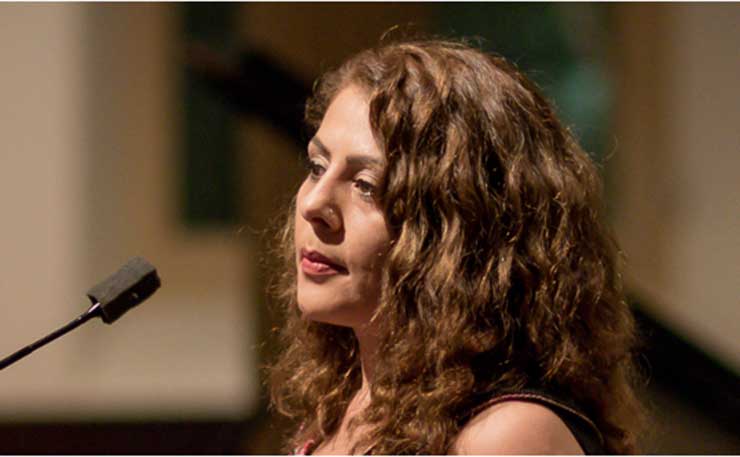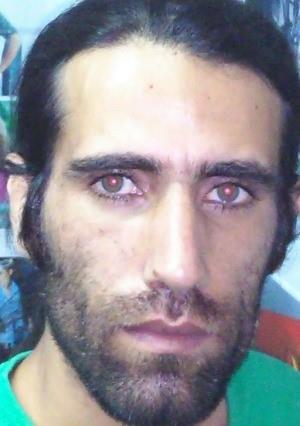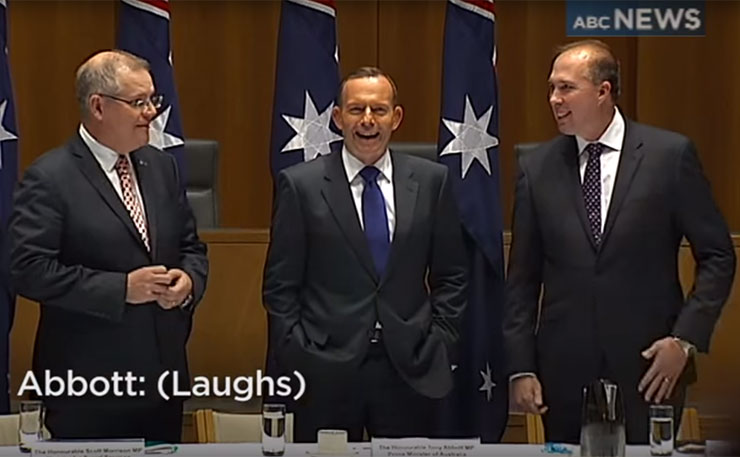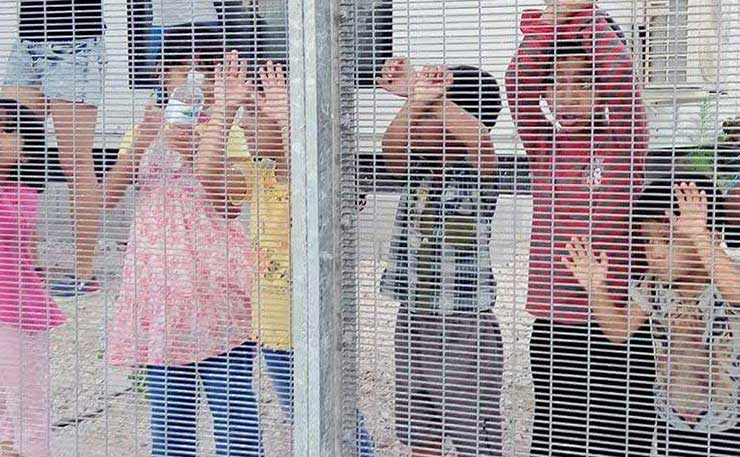NSW Parliament – nicknamed the bear-pit – took on an unaccustomed healing role recently. Professor Stuart Rees explains.
Can poets and musicians really change the world? In the theatrette of the NSW State Parliament last week, participants in a Symposium for women’s rights and social justice answered this question. In doing so they also reacted to the misery imposed on asylum seekers.
By video link, Iranian Mina Taherkhani described her three years detention on Christmas Island and Nauru, “I was yearning for justice in a country which claims to uphold women’s rights but all I experienced was trepidation and panic.”
Iranian Behrouz Boochani said of his 28 months incarceration on Manus, “We have been exiled, displaced, left hopeless.”
De-Colonization
Directed by the Iranian film-maker, poet and human rights activist Saba Vasefi, the Symposium gave young women of migrant and refugee backgrounds the chance to portray, through poetry and music, a more just and hopeful world.

Saba – ‘have no fear’, ‘make the impossible possible’ – had fled to Australia having been expelled from university teaching for campaigning against capital punishment. She speaks of the consequences of colonization, that history of powerful nations taking what they wanted, discarding or eliminating those who got in their way.
In response to their own horrendous experiences of colonialism, Kirstie Parker, CEO of the National Centre for Indigenous Excellence recalled the words of the Aboriginal poet Oodgeroo Noonuccal. In her poem ‘All One Race’, instead of expressing bitterness at her people’s treatment, Oodgeroo advocated justice through unity, “I’m international, never mind place; I’m for humanity, all one race.”
Artists who responded to the Oodgeroo challenge included the rappers Kween G and Candy Royalle, vocalists Rebecca Hatch and Minerva Khodabande and the Arab-Australian poet Sara Saleh.
Deception
Although these artists expressed hope for alternatives to current detention centre policies, they also had to deal with governments’ deception and cruelty.
Deception begins with politicians’ claims they are devout Christians and filled with compassion. Such sentiments mean that asylum seekers remain imprisoned and almost always voiceless.
Behrooz observed, “We are people not animals, All we want is a freedom to pursue happiness.”

Deception includes the claim that detainees on Manus and Nauru have a choice whether to settle in those lands or return to where they came from. The architect of the Sovereign Borders ‘Turn back the boats’ policy, former General Jim Nolan, thinks that choice for asylum seekers is the same as choosing cereals from supermarket shelves.
Proud to obey his bully-boy masters Scott Morrison and Peter Dutton, he’s been adept at proposing military solutions for humanitarian problems.
Choice could be a mirage. Poet Sara Saleh warned, “Be careful how language is used…. But justice means the same in every language.” Listen! Think! Reflect!
Deception often depends on secrecy. Turn back the boats is a security matter so it can’t be subject to public scrutiny. Access to asylum seekers must be denied. The voices of the victims should not be heard.
Cruelty
Although the word cruelty can’t be found in the indexes of policy textbooks, such practice is the centrepiece of Australian governments’ treatment of asylum seekers.
Kween G and Candy Royalle sang that racism fuelled deception and cruelty. “Racism evident in Islamophobia, the new anti-Semitism.” Listen! Engage! Sing!
Given the cue by his predecessor John Howard’s refusal to allow asylum seekers on the Norwegian freighter the Tampa to land on Australian shores, Prime Minister Malcolm Turnbull poses as a leader, “No-one from Manus Island or Nauru will ever come to Australia.” In taking that stand, his support from an equally cowardly opposition means that he can’t be accused of merely appeasing the far right.
Hope? Compassion? Leadership?
Through tears, Mina Taherkhani described the long-term consequences of cruelty. “I was sexually abused in Iran and forced to marry. The abuse of my father was followed by abuse from my husband. I fled to a justice-loving Australia. For three years my life is without hope.”
Successive performers offered hope so that the depressed and desperate might find inspiration. In the pop ballad ‘Beautiful’, Minerva sang of self-empowerment and inner beauty. “I am beautiful, No matter what they say, Words can’t bring me down, I am beautiful, In every single way…”

Even when asylum seekers achieve refugee status in Australia, they are left to struggle in limbo. The government’s unholy trinity of homeland cruelty includes temporary protection and bridging visas, lives of uncertainty compounded by family reunion waiting lists which last for 20 years.
Dignity? Fair Go? Hope for Human Rights?
Hopes for the future depend partly on Australia obeying international law and eventually passing a Bill of Rights. From the stage of the Symposium, barrister Julian Burnside observed, “The arguments against such a Bill – that it would hinder parliament from doing whatever it wants to – are the best arguments for passing such legislation.”
On a more pessimistic note, successive Immigration Ministers have trumpeted that Australia is the fairest, most generous country in the world, a claim that encourages an aggressive nationalism.
By contrast 15-year-old Rebecca sang the Michael Jackson ballad ‘Heal The World’: “Make it a better place, for you and for me, and the entire human race.”
The Symposium addressed tough topics but until the end of the evening, no reference had been made to Palestinians, the people with the longest experience of being refugees.
Candy Royalle dealt with this omission with a passionate portrayal of Palestinian lives from 1948 onwards. “I am my grandfather’s memories… where death was wiping out whole villages… where to stay was to die, to leave was to die… (but) where the Holy Land was referred to constantly… my father used to be a warrior… he is now only a worrier… I am the memory of this lost land.”
What Sort of Future?
The Spirit of the Symposium continues. In the NSW Legislative Assembly, Greens MP Dr Mehreen Faruqi has successfully moved a motion congratulating Saba Vasefi on the Symposium’s success.
The Symposium participants know how to challenge deception and cruelty. They know of the despair on Nauru and Manus and the decades of occupation for Palestinians. They know that poetry can release the hurt in people, that love and activism can’t be separated.
Their passion suggests they will pursue the English poet Shelley ’s vision, “Poets are the unacknowledged legislators of the world.”
Donate To New Matilda
New Matilda is a small, independent media outlet. We survive through reader contributions, and never losing a lawsuit. If you got something from this article, giving something back helps us to continue speaking truth to power. Every little bit counts.





